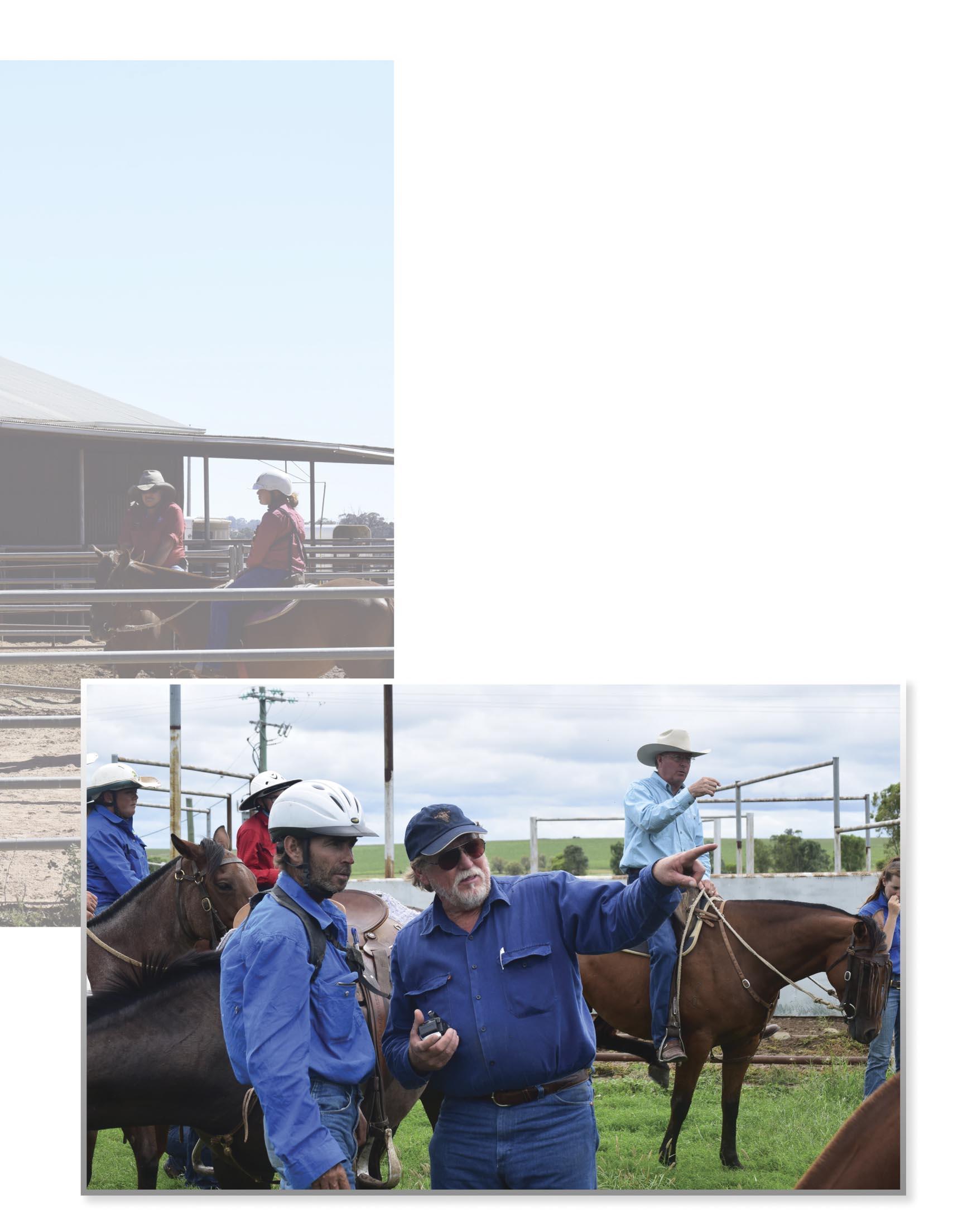
5 minute read
Achieving Successful Outcomes from Difficult Conversations
By Dr. Nels Lindberg, Production Animal Consultation
Remember, words create worlds. Words determine direction. Words invite resistance or open hearts. Words convince or deceive. Words cut or heal. Words inspire or discourage. Words make work difficult or enjoyable. Words elevate your status.
Who has felt the pressure to have a difficult conversation lately? Do you need to clarify expectations with an underperforming member of your animal health team or feed crew team? Is it time to address a key leader that is not meeting the communicated standards and expectations of the organization?

I routinely speak about having difficult conversations because most of us were never taught how to have them. Our universities certainly do not have the knowledge to teach how to conduct difficult conversations because they typically do not have them. Difficult conversations often end in complete and devastating failure, with cutting words said that are like nails in a coffin. We conduct the conversation poorly, and no one leaves the conversation feeling good about it. Have you ever done that? I sure have, a good number of times!
Unless we are fortunate enough to have an awesome pastor or mentor teach us how to have difficult conversations, we must take it upon ourselves to study up on how to do it. Ultimately, if difficult conversations are avoided, the future will likely look like the past, and minimal progress will be made moving the bus forward. As a matter of fact, one will likely take a few steps backward, rather than forward, by avoiding a difficult conversation. In the avoidance of the difficult conversation, mediocrity begins to grab hold of your operation. Even more importantly, those that master the art of difficult conversations will enjoy greater success by virtually any tangible or intangible measure.
The following are eight key points to execute when having difficult conversations. Over the years, I have observed, absorbed, read about, listened to, and failed to deliver on these points. In my experience, these points are crucial for helping to create improved worlds rather than destroy worlds.
1. Show extreme grace. While you may hold great anger toward the other person, no one is perfect, including you, and you have made mistakes before as well. To extend grace to someone means to give courteous goodwill and respect. Instead of assuming negative intent, always give the other person grace and assume positive intent behind their actions.
2. Be kind. Show empathy by putting yourself in the other person’s shoes to better understand the difficulties he or she might be facing. If we all lived more like our mommas and grandmas taught us, I am certain our world could be almost as perfect as possible. Frustration often removes kindness from our voice, so dig deep to avoid frustration. Instead of focusing on where the other person may not be meeting your expectations, reach for gratitude and show you appreciate all the good they do each day in other areas.
3. Deflect inward. Search your soul and share how you have messed up the same way over the years. This shows humility and relatability and shows you are human. None of us is perfect, and if you are like me, you have screwed many things up yourself. When you are not willing to share the mistakes you have made before or admit your responsibility in the current problem, the other person will often feel the conversation was worthless and leave thinking, “They can’t even accept their own faults! How can they expect me to accept mine?” Take responsibility for your part.
4. Apologize for your part. Apologize for your lack of clarity, for not talking to them sooner, for your excessive firmness or candor, or maybe even for showing anger. Apologize for your shortcomings in having difficult conversations. An apology shows that you not only have a vested interest but also that you likely are not 100% innocent. It has been my experience in many difficult conversations I have had or moderated that no one is 100% innocent.
5. Let go of thinking, “I’m going to teach them a lesson!” Aiming to teach someone a lesson ends up teaching no one and leaves you bitter and angry. Instead of looking to point your finger and teach a lesson, look to help the other person get better at his or her job. This will teach them that you care for them and their success at work and in life. They will realize you are trying to build them up, not trying to tear them down.
6. Do not avoid or delay the conversation. Waiting too long to have a difficult conversation, or worse yet, never having the difficult conversation, is the number one mistake we are all guilty of making. It takes intention, energy, and ability to have difficult conversations. We avoid them because those conversations require us to suffer. When you do have the conversation, do not have it from behind any keyboard or screen! Conducting the conversation face to face helps to keep dangerous words from flying out of your mouth. Hiding behind a keyboard, courage usually results in destructive rather than constructive conversation.
7. Wear a different “hat”. Different “hats” may be warranted when the conversation involves a team member, client, or student. If there is a direct answer, wear the “business owner hat”. If you truly care for this person, maybe you should also wear the “caring friend hat”, “mentor hat”, or “dad hat”. Preface the conversation with which hat you are wearing, so the other person knows which position you are coming from.
8. (The most important) Acknowledge the difficult nature of the conversation at the start. Any time you are going to have a difficult conversation and know it could get heated or has the potential to “turn south”, make sure you communicate clearly from the beginning. Start with, “We are going to have a difficult conversation. You may not like or may disagree with parts, but we are going to do this. Everyone is going to remain calm, cool, and collected; no one is going to get upset or stupid, or walk out and leave.” I did this for the first time in a very difficult conversation with a client over five years ago, and it worked perfectly. In fact, they are still a client today. I have said this numerous times since then (two times in just the last week), and I promise you it helps every single time.
All that being said, I still am not perfect at having difficult conversations. Believe me, I have more than one former and current employee, a wife, and a kid that would tell you I have messed it up. But I can tell you, if you intentionally work on these eight objectives, with practice and preparation, you will get better at it!
Remember, words create worlds. Words determine direction. Words invite resistance or open hearts. Words convince or deceive. Words cut or heal. Words inspire or discourage. Words make work difficult or enjoyable. Words elevate your status. The people around you need you to develop the skills to have difficult conversations to help them get better at work and in life. May God bless you with intense discernment in those conversations!











